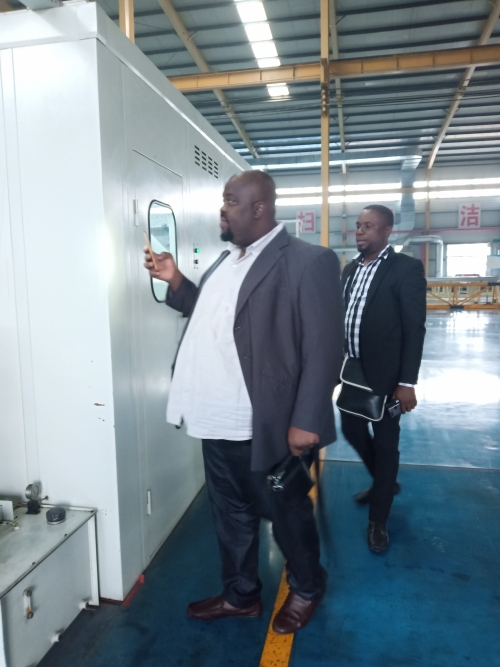335345435
Aug . 13, 2024 08:26 Back to list
Custom Hydraulic Hose Solutions Tailored to Your Specific Industrial Needs and Applications
Custom Hydraulic Hoses Tailored Solutions for Optimal Performance
In the realm of industrial applications, hydraulic systems play a pivotal role in the smooth functioning of machinery and equipment. Central to these systems are hydraulic hoses, which facilitate the transfer of fluids under pressure. While standard hoses may suffice for many applications, the increasing complexity and specificity of modern machinery often necessitate custom-designed hydraulic hoses. This article will explore the benefits of custom hydraulic hoses, the manufacturing process, and key considerations when ordering made-to-order solutions.
The Necessity for Custom Hydraulic Hoses
One of the primary reasons businesses opt for custom hydraulic hoses is to ensure compatibility with unique system requirements. Various agricultural, construction, and manufacturing equipment have different specifications regarding diameter, pressure ratings, temperature tolerances, and fluid compatibility. Off-the-shelf hoses may not meet these critical needs, leading to inefficiencies, potential system failures, or costly downtime.
Additionally, the performance of hydraulic systems relies heavily on the quality and suitability of the hoses used. Custom hydraulic hoses can be engineered to precisely match the performance specifications, which enhances the overall efficiency and longevity of hydraulic systems. Moreover, custom hoses can be designed with specific materials that resist wear and tear in particular environments, such as extreme temperatures or corrosive substances.
The Manufacturing Process
The process of creating custom hydraulic hoses begins with a thorough assessment of the customer’s requirements. This may include consultations with engineers or technicians to discuss the application, operating conditions, and preferred materials. Once the specifications are finalized, the manufacturing process can begin.
Typically, the production involves selecting the appropriate inner tube, reinforcement layer, and outer cover. The inner tube must be compatible with the fluid being transported, while the reinforcement—often made from materials like steel wire or textile—provides the necessary pressure resistance. The outer cover protects the hose from environmental factors such as abrasion, UV exposure, and chemicals.
After the components are selected, they are assembled using advanced machinery. The hoses are tested extensively to ensure they meet the specified pressure ratings and safety standards before being shipped to customers. This rigorous testing process is crucial, as it guarantees that the hoses will perform reliably in demanding conditions.
hydraulic hoses made to order

Key Considerations When Ordering
When ordering custom hydraulic hoses, several key factors should be considered to ensure that the final product meets the intended requirements
1. Specifications Clearly outline the required dimensions, including diameter and length, as well as pressure rating, temperature range, and fluid type. Accurate specifications are essential for achieving the desired performance.
2. Material Selection Consult with manufacturers about the best materials suited for your application. Different environments may require hoses made from specific polymers or composites to enhance durability.
3. Connector Compatibility Ensure that the hose fittings or connectors are compatible with the existing system to avoid leaks or failure.
4. Lead Time Custom hoses typically require longer lead times compared to standard products. Plan accordingly to prevent disruptions in your operations.
5. Cost Considerations While custom hoses may come at a premium price, the long-term savings from reduced downtime and maintenance should be weighed against the initial investment.
Conclusion
In conclusion, custom hydraulic hoses are essential for industries that rely heavily on hydraulic systems. By opting for made-to-order solutions, businesses can ensure that they are using hoses that meet their specific requirements, ultimately leading to greater efficiency and reliability. As technology continues to evolve, the demand for customized hydraulic solutions will likely grow, paving the way for innovations that enhance performance and safety in industrial applications. Investing in custom hydraulic hoses not only addresses immediate needs but also contributes significantly to the longevity and success of hydraulic systems.
-
SAE 100 R17 Black Smooth Cover Hydraulic Hose
NewsMar.07,2025
-
SAE 100 R17 Black Smooth Cover Hydraulic Hose
NewsMar.07,2025
-
SAE 100 R17 Black Smooth Cover Hydraulic Hose
NewsMar.07,2025
-
SAE 100 R17 Black Smooth Cover Hydraulic Hose
NewsMar.07,2025
-
SAE 100 R17 Black Smooth Cover Hydraulic Hose
NewsMar.07,2025
-
steel wire braided hydraulic hose
NewsMar.07,2025



